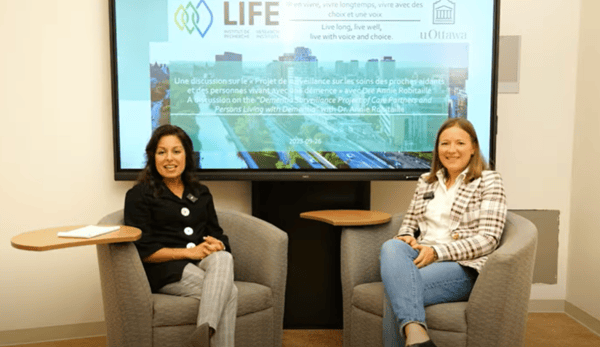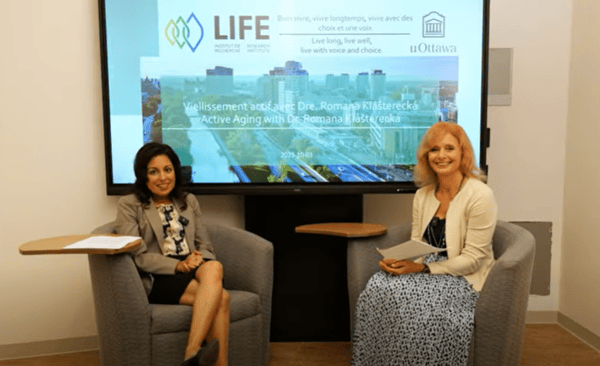Watch the new documentary “Dementia: You Can Make A Difference” by Peabody Award winner Firdaus...


Watch the new documentary “Dementia: You Can Make A Difference” by Peabody Award winner Firdaus...

The LIFE Research Institute, dedicated to promoting healthy living and aging, recently had the...

The field of aging research is gaining prominence as the global population experiences a gradual...

Watch Episode 1 of the Life Research Institute's video capsule, as it casts the spotlight on an...
The Difficulty with Early Diagnosis for Ovarian Cancer: Why Ovarian Cancer is Considered a “Silent Killer”
Watch episode 4 of the LIFE Research Institute’s video capsule series, where Dr. Ben Tsang, a professor emeritus involved with the Faculty of Health Sciences, Faculty of Medicine, and the Ottawa Hospital Research Institute, discusses the struggles encountered when dealing with patients with ovarian cancer.
In light of September being Ovarian Cancer Awareness Month, the director of the LRI, Dr. Nafissa Ismail, met up with Dr. Ben Tsang, who specializes in ovarian biology, to discuss ovarian cancer, its early signs, and diagnosis.
Why is translational and interdisciplinary research on ovarian cancer so important?
Dr. Tsang emphasizes that ovarian cancer is a tricky disease to diagnose. One of the challenges accompanying diagnosis is late diagnosis because “Most individuals realize they have ovarian cancer at stages three and four…but those symptoms [experienced at these stages] are very common.”
Ovarian cancer symptoms often do not appear until the later stages of cancer development, at stages three and four, and even at that point, the symptoms that occur are prevalent symptoms in many other diseases, so narrowing down the diagnosis to ovarian cancer can be very difficult. Another difficulty Dr. Tsang discusses is that most drugs used to treat ovarian cancer are only effective in the first round. If the cancer returns, it won’t respond to the chemotherapy anymore and becomes chemo resistant.
Interdisciplinary and translational research on ovarian cancer is essential because it is “such a complex disease that involves researchers from different disciplines,” says Dr. Tsang. He goes on to describe how, by working together with engineers, they were able to begin learning how to utilize technology to aid in early diagnosis and differentiating whether a patient is chemo-responsive or chemo-resistant, which is a huge step forward in the field.
What are some of the early signs of ovarian cancer?
Symptoms at stages 3 and 4 of ovarian cancer can include:
- Feeling bloated
- Being unable to eat as much as normal
- Finding it inconvenient or uncomfortable to move around
The lack of symptoms and difficulty with early diagnosis is the reason why ovarian cancer is considered a “silent killer disease” and is the reason why continued research in the field using interdisciplinary approaches is vital.If you found this discussion informational and interesting and are as inspired by Dr. Tsang as we are, watch the full video on the LIFE Research Institute's YouTube channel.
By LIFE Research Institute
Ageing begins at birth and is our response to the multitude of factors and influences faced throughout our life trajectories. The LIFE Research Institute assembles researchers and partners with diverse perspectives who work collaboratively to understand how we are guided along the unexpected trajectories of life. We expect this knowledge will transform how we view the roles for individuals and society in ageing and create new opportunities for life fulfillment and well-being. We want to inspire individuals to live the longest, best lives possible honouring the many varied choices along the way.Also Read